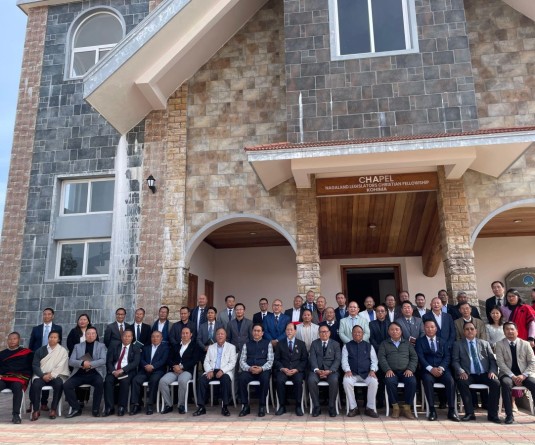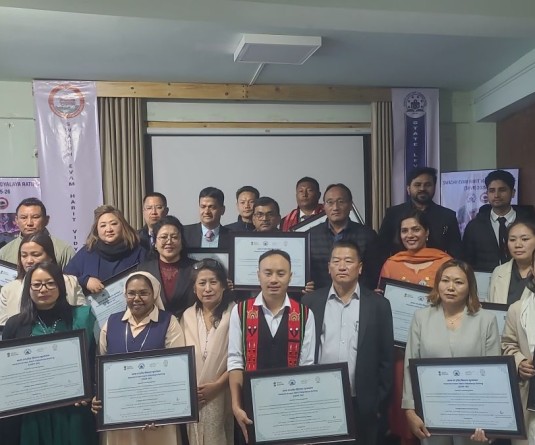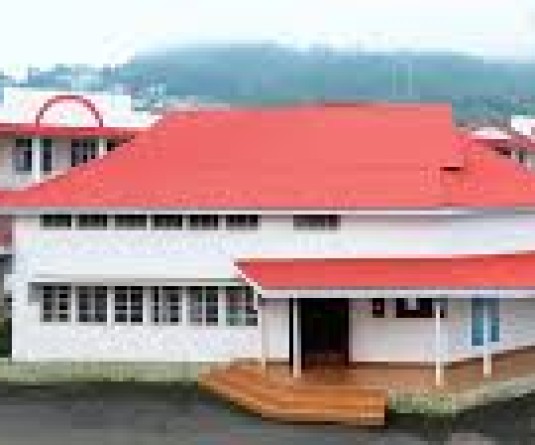
Calls for a team of HR experts to assess, investigate and make meaningful recommendations to the parties in the peace process
DIMAPUR, SEPTEMBER 17 (MExN): The International Committee for the Indigenous Peoples of the Americas (Incomindios) and the Global Naga Forum (GNF) submitted a statement at the 48th session of the United Nations Human Rights Council (UNHRC) drawing attention to the Naga struggle for self determination.
The statement, which was made available to the media, called upon the UNHRC to support the Naga people “attain their long-cherished goal of self-determination in one homeland,” by urging the Government of India to negotiate for a peaceful solution to the Indo-Naga issue in good faith, starting with immediate repeal of AFSPA and ending the militarization of the region.
It called for the constitution of a team of UN human rights experts to “assess and investigate” the Indo-Naga peace negotiations, making meaningful recommendations to the parties engaged with the peace process.
The statement also appealed to all relevant international bodies and agencies, especially the nation-state parties and players, NGOs, human rights watch groups to support expeditious resolution of the Indo-Naga problem and assist in a “just and amicable deal” for all the stakeholders – India, Myanmar, Nagas.
It pointed out that the Naga people have been suffering from a long-standing Indo-Naga political conflict, adding that they need “support from the HRC to find a way out of the impasse in the current peace negotiations.”
“The indigenous Naga people’s post-colonial struggle for self-determination is 75 years running. It remains unmet because of the Indian State’s repressive opposition and Myanmar’s discrimination of the Nagas. This reality is verifiable by historical facts and the current state of affairs,” it added.
It further emphasized that the statement is being made “not in a spirit of accusation but in the interest of human rights, justice, and peace for all the stakeholders involved (India, Myanmar, and the Naga).”
The GNF and Incomindios said that an expedited peaceful resolution of the problem is imperative and can help start a mutually beneficial and transformative future. It however stated that such a future can be nurtured only by a “process of healing” for the Nagas and building mutual trust among India, Myanmar, and the Naga.
“The process of healing and trust building is dependent on one core condition: Permitting Nagas to exercise their right of self-determination as Indigenous Peoples in their ancestral homeland,” it stated. It pointed out that in the current situation, the Government of India has the power and the means to remove the artificial boundaries that separate and divide the Naga in four different states, and for the Government of Myanmar to allow the right of self-determination to the Nagas in the country.
The GNF and Incomindios laid out the history of the Naga people and their struggle for self determination, and stated that “from the start, the Nagaland state in the Indian Union was a source of divisions among the Nagas – it still is; while for GOI, it is the basis for claiming that the long-standing Indo-Naga conflict is a domestic law-and-order issue, not a human rights issue.”
The “imposed state of Nagaland,” it stated, has deepened the division among the Nagas, as well as perpetuated violations of their rights.
“After over seven decades of painful struggle, Nagas want a political settlement for their homeland where they can live together as one people with a self-determined future, without manipulation and militarization of their lands by India and Myanmar. This is the crux of the reason the Indo-Naga situation requires the Council’s urgent attention,” it stressed.
Further, it said that the separation of the Naga people in different states in two countries have affected their ability to maintain relationship with one another as an indigenous nation. These divisions contravene Article 36 of the UN-Declaration on the Rights of Indigenous Peoples, the statement informed.
Further, it highlighted that biodiversity in the Naga homeland has been “devastated” and that the effects of global warming are causing uncontrolled migration flows into the Naga homeland.
“The Nagaland state government, because of its total financial and political dependence on New Delhi, has no answer to the problems. There is no significant private sector, no investment opportunities, and no functioning political economy. Corruption is rampant, elections are mostly decided by money power,” it added.
The statement further said that “Nagas and other indigenous peoples are put in severe physical and cultural jeopardy.” It meanwhile questioned how India can take active leadership in the UNHRC considering its “dismal human rights record in the Naga homeland.”






